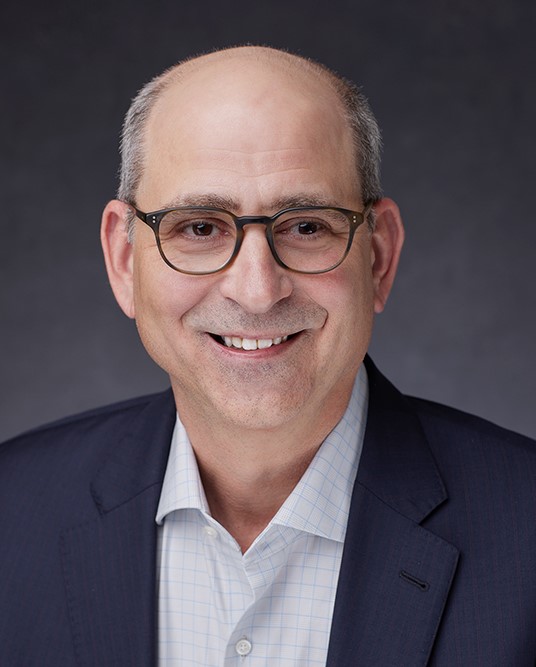
A Conversation with David Epstein ’84
Meet David Epstein, Rutgers University College of Pharmacy Class of ’84, the Chief Executive Officer of Seagen, a global biotechnology company dedicated to revolutionizing cancer care:
Prior to Seagen, he was executive partner at Flagship Pioneering. From 2010 to 2016 he served as Chief Executive Officer of Novartis Pharmaceuticals, a division of Novartis AG. Previously, David started and led Novartis’ Oncology and Molecular Diagnostic units. Over the course of his career, he led the development and commercialization of over 30 new molecular entities, including major breakthroughs such as Gleevec, Tasigna, Gilenya, Cosentyx and Entresto. In addition to his B.S. Degree in Pharmacy from Rutgers, David also holds an MBA in Finance and Marketing from the Columbia University Graduate School of Business.
Recently, Shivani Gupta ’20, member of The EMSOP Alumni Council, had the opportunity to chat with David about his career, Rutgers experience, and advice for current students.
Can you please share what aspects of your career you are most proud of?
There are a number of things, but most of the highlights are around either products I developed or people I developed. Most recently, will be the transaction between Seagen and Pfizer that will allow Seagen’s cancer medicines to reach more patients globally more quickly. In addition, over the course of my career, I’ve been involved in multiple breakthrough drug developments and launches. Many of those programs, in the early days, weren’t thought to be able to make it as a drug either based on tolerability or efficacy profile and now they are transformational medicines. In terms of people, as a leader you don’t do much yourself other than provide vision and help build a high performing team, get rid of bureaucracy, and coach people. Ultimately it’s the people you hire and their ability to work together that makes great things happen. As my career progressed, I got better and better at building high performing teams. Regardless of the size, it’s about building that team spirit, having alignment of the goal, and creating an environment where people can have fun as well as contribute to work.
How was your Rutgers Pharmacy experience foundational in where you are today?
Before Rutgers, I was a guy that took some biology and chemistry classes in high school. I spent summers and maybe some weekends working for the local pharmacist- who funny enough tried to convince me not to go to pharmacy school. And I didn’t listen to him. I went to pharmacy school. I made a lot of friendships, learned a lot about science, learned about patients. Similar to the current program, they put us through those different rotations where I got experience working in a hospital and retail pharmacy, working at Warner Lambert which no longer exists. It shaped me a lot. I had phenomenal professors, some of them which are probably still embedded into the school. Professor Medwick, Joe Barone, these people just are sort of legends and you got to learn from them. Overall it was a great experience.
Are there any passions or ongoing projects that you are a part of?
Birds! So I worked at Novartis for a number of years and stopped in 2016. Afterwards, we bought a place in Florida on the beach. And you could see these birds flying by sea- all kinds of seabirds and pelicans (which you don’t have in NJ). So after a quick Google search, I found this little rescue operation that was about half an hour from my house. So my wife and I went down and visited; we really liked the people, just a 1,200 square foot Animal Hospital, so we gave a donation. Then a couple of months later, they called me and they asked me if I would be on the board, which I agreed to do. And three months later, they said, the Pelican Harbor Seabird Station needs a new vision, would you be the chairperson? And lo and behold, I became an expert on pelicans and South Florida Wildlife. Right now we’re building an 8,000 square foot animal hospital down in Miami, it’ll be ready in about two years. We’re raising $15 million if anyone wants to contribute, you can go to www.pelicanharbor.org and see everything we do. If you look at pelicans on the East coast in the United States, over 9,000 of them were treated at our animal hospital, but we care for all animals: we do osprey, we do chipmunks, whatever is natural to the environment, we care for them.
What words of advice do you have for current EMSOP students and recent alumni?
I have two fundamental beliefs that drive me. One is to treat others exactly as you intend to be treated. That’s sort of my guide. Second thing is try to leave the world a slightly better place if at all possible.
And that guides my entire value system. It’s helped me work with a lot of very interesting, very diverse, different kinds of people. These two beliefs ultimately have been very powerful.

